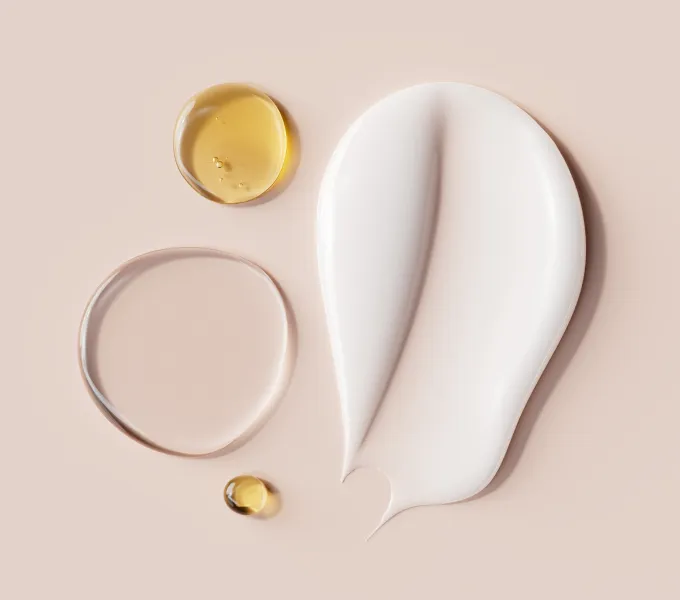
Do "Orgasm Enhancing" Creams and Lubes Really Work?
If you’re someone who struggles with consistent orgasms during sex (or someone who struggles to orgasm at all), you’re not alone. So many women find it difficult to get there with their male partners that researchers gave the phenomenon a name: the orgasm gap. One study found that about 22% of women say they have trouble with orgasm, while only 5% of men say the same. And overall, nearly 3 out of 4 women say they can’t achieve orgasm during sex.
Can adding an “orgasm enhancing” lubricant or cream to sex help improve those numbers? That’s what our friends from Wisp are here to explain — keep reading!
What can cause stalled or unsatisfying orgasms?
If you enjoy sex, but have difficulty achieving orgasm or your orgasms are unsatisfying, you’re experiencing what doctors call “orgasmic dysfunction,” or female orgasmic disorder. Orgasmic dysfunction is a general term that’s used to describe any kind of difficulty reaching orgasm, regardless of the level of sexual excitement. It may be associated with low desire or libido, but it doesn’t have to be.
There are many different factors that can impact your ability to orgasm, including but not limited to:
- Stress, fatigue or depression
- Shyness around sex
- A history of sexual abuse or trauma
- Aging
- Painful sex and/or chronic pelvic pain
- Menopause
- Low self-esteem
- Attraction to your partner
- A change in medication
- Hormonal changes
Again, inability to orgasm or dissatisfaction with orgasm is only a problem if it’s a problem for you. It’s always best to discuss your sexual relationship with your partner in an open and honest way, but if you haven’t been feeling quite yourself, there are things you can do to get things going in the bedroom.
How does menopause affect sex and orgasm?
Officially, menopause is a point in time 12 consecutive months after your last period when your ovaries are no longer producing estrogen or releasing eggs. As you may expect, this is a pretty dramatic hormonal change for your body and can have a significant impact on your libido, your experience of sex, and your ability to have a satisfying orgasm.
The drop in your body’s estrogen can affect vaginal tissue, leading to thinner vaginal skin and increased dryness. Sex may become uncomfortable or painful, and you may start experiencing more frequent UTIs—these factors don’t exactly set you up for a sexy, fun time.
If you do find you’re interested in pursuing sex, but vaginal pain or dryness are standing in your way, we’re happy to report that there are ways to address that. Pelvic floor physical therapy has been found to help with several symptoms related to menopause, including pain during sex. What about creams and lubes? Let's dive into what works — and what doesn't.
Should you use “orgasm enhancing” lubricants?
Just as important as condoms, lube serves to make intimate encounters easier and more pleasurable! Lube reduces friction and irritation so you can try different positions and go for longer. If this is your first time choosing a lube, or if you are prone to BV or yeast infections, you’ll want to pay attention to the ingredients in your lube. Here’s what to watch for:
- Lots of lube products contain fragrances or other irritating ingredients that could cause your most sensitive areas to react. Many over-the-counter lubes that may claim to enhance orgasm or promote pleasure “for her” can actually cause more problems than they solve! Watch out for words like “warming” or “tingling” — the same ingredients that cause that “tingle” can lead to imbalances for your vagina the morning after.
- You’ll also want to watch out for flavored or edible lubes. Many of these products contain sugars that can lead to infections or general discomfort.
- Finally, avoid any lubricant that contains artificial flavors, colors, sugars, essential oils, additional additives, or glycerine. These additives are known to be irritating and can throw off your vaginal health.
All this sound a bit too overwhelming? Wisp’s silicone-based Harmonizing Lube is non-irritating, waterproof, and specifically formulated for sensitive vaginas. For more options, check out Origin's list of highly recommended lubricants.
Should you try an orgasm-enhancing cream?
While orgasm-enhancing lubes generally do not work, there is an orgasm-enhancing cream that is safe, effective, and doctor-recommended. Unlike the lubes or gels you may see in your local drugstore, this kind of cream doesn’t rely on tingling peppermint or other essential oils to create sensitivity — they use sildenafil, which is the same prescription-only ingredient in Viagra.
The cream works by dilating the blood vessels in and around the genitals to increase blood flow to the clitoris, thereby increasing sensitivity and heightening pleasure, which can help you achieve a more satisfying orgasm.
Wisp’s OMG! Cream is a lightweight sildenafil cream designed to help your body get orgasm-ready. A pea-sized amount applied topically to the clitoris and surrounding area is enough to boost blood flow instantly, leading to increased natural lubrication and sensation.
Tips for getting the most out of sildenafil cream:
- You can use sildenafil at any time, but there may be times when you feel its effects the most. In the final days of one’s menstrual cycle, as well as during menopause, estrogen levels decline, resulting in a decrease in natural lubrication. sildenafil can help increase vaginal sensation during these periods, enabling a more satisfying orgasm.
- Compounded sildenafil cream like sildenafil shouldn’t be ingested orally, but once the medication has taken effect it may be cleaned off with a body wipe to proceed with oral sex (in fact, we recommend it).
- Everything has its limits. Don’t use sildenafil creams more than 4 times in 24 hours.
- As with any medication, there is a risk for a male partner to experience an allergic reaction to any of the ingredients after coming into contact with the topical cream. Additionally, if a male partner is taking nitrates or blood pressure-lowering agents, or they would be at risk with the sildenafil, avoid exposure to any open wounds or active infections.
- OMG! Cream uses the same active ingredient as other similar treatments, but features one important difference — it doesn’t contain arginine, an amino acid that can increase the frequency and severity of herpes outbreaks and is common in other scream creams. If you’re someone that deals with herpes outbreaks, OMG! Cream is perfectly safe for you to use! And, while it is not recommended for use in the presence of newly-formed ulcers, it can make masturbation more enjoyable in the days before or after an outbreak (before returning to partner sex).
Remember: it’s perfectly natural for your levels of desire and your experience of sex to change and evolve with you. If you’re just not feeling it and you’re focused on other things, that sounds good to us. But if you’re looking for a little extra TLC in the bedroom, you've got options!



